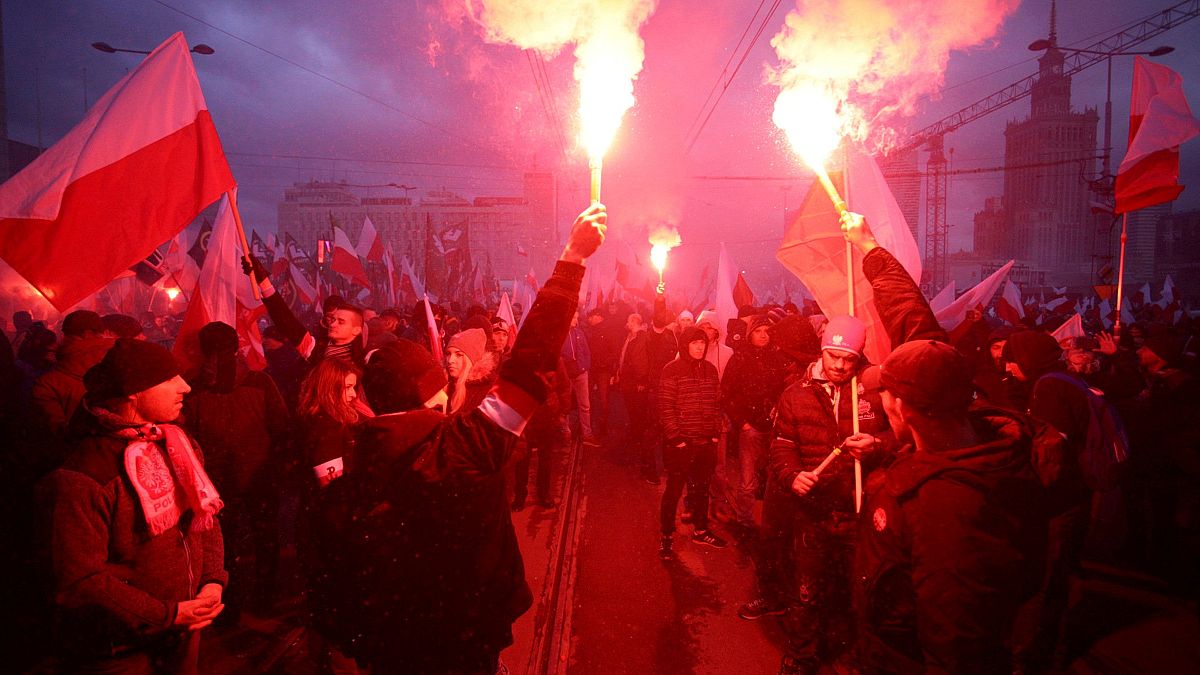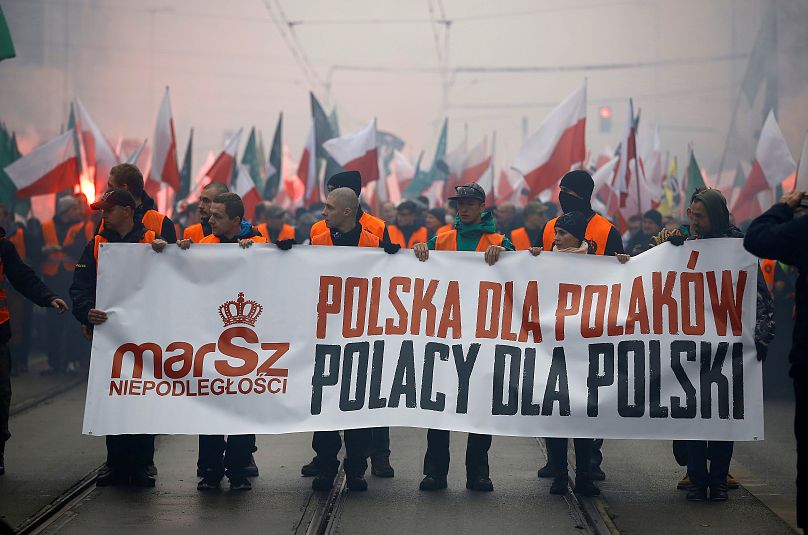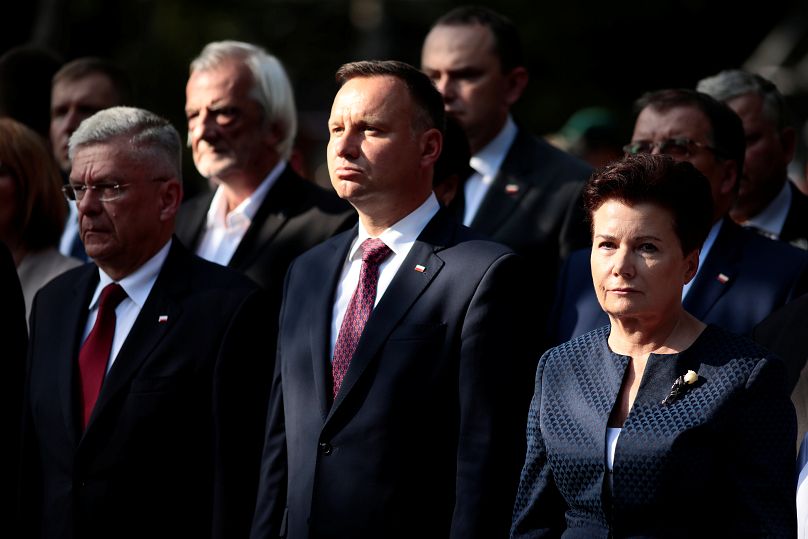An annual nationalist rally in Warsaw is set to go ahead on the centenary of Polish independence after a court said a city ban was unconstitutional.
A court in Warsaw has overturned a ban on a far-right march, amid a week of confusion in the run-up to commemorations on Sunday to mark 100 years of Polish independence.
The judge in the local court cited the constitutional right to freedom of assembly as the reason. The city has the right to appeal.
Warsaw’s mayor had originally banned the rally, saying the Polish capital had “suffered enough due to aggressive nationalism” and warning there was a risk of violence.
The organisers, who had threatened to defy the ban, have welcomed the decision. “We are victorious, the Independence March will take place in Warsaw,” they said in a statement.
Far-right marches have become increasingly prominent in Poland on November 11, the country’s Independence Day.
Many ordinary Poles attend with national flags, saying there is nothing wrong with expressions of patriotism honouring the country. However, the rallies have been organised in part by nationalist groups such as the National Radical Group, National Movement and All Polish Youth.
They have attracted tens of thousands of people, including far-right groups from across Europe. Last year’s event featured nationalist and xenophobic banners and chanting, featuring slogans such as “pure blood, clear mind” and “Europe must be white”.
The 2017 march was condemned by several groups including Jewish organisations. The leader of the ruling PiS (Law and Justice) Party, Jarslaw Kaczynski, said “Polish tradition… has nothing to do with anti-Semitism… nothing to do with racism”.
This year there have been fears of more open expressions of extremism – potentially overshadowing commemorations marking the end of World War One.
The authorities had been trying to persuade the nationalists to tone down this year’s march and banish provocative banners, however there was no agreement.
Warsaw mayor Hanna Gronkiewicz-Waltz, from Poland’s opposition Civic Platform Party, stepped in this week to ban the march, citing security reasons.
At that point President Andrzej Duda and Prime Minister Mateusz Morawiecki announced plans for a government march, which would be more inclusive than the far-right event, following the same route.
The far-right spectacle at independence marches in recent years has put the government and ruling conservative party under the spotlight. Law and Justice itself has a nationalist agenda, expressing frustration at what it calls the liberal establishment at home and in Europe.
It has been increasingly at odds with the EU over migration – Poland has refused demands to take in Middle Eastern and North African migrants – and over the rule of law.
After appearing to appease the far-right nationalists in the past, the Law and Justice party now shows signs of taking a harder stance.
“We do not accept… those (far-right) groups gathering in Poland under any circumstances,” Prime Minister Morawiecki said on Thursday. He has also said there will be no tolerance for foreign agitators.
President Andrzej Duda called for demonstrators to carry only Poland’s national flag, warning that the police will intervene should offensive banners be displayed.
The move by the Warsaw court follows a similar decision in the city of Wroclaw to lift a ban on a far-right march.
Following the ruling in the capital, it was not immediately clear whether both planned marches would go ahead separately, or whether they would merge into one.
Commemorative events are planned all over the country on Sunday, marking the centenary of the end of World War I and Polish independence from Russian, Prussian and Austrian control.


